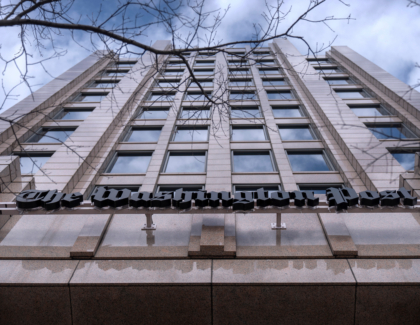Sign up for the daily CJR newsletter.
I doubt anyone underestimates the business instincts or acumen of Jeff Bezos, the founder of Amazon and one of the wealthiest people in the world. As the owner of the Washington Post, as described by former Post editor Martin Baron in his book Collision of Power, Bezos has had a record of navigating the waters of big business, politics, and newspapering with a strong but quiet nimbleness.
That contrasts starkly with the abrupt decision last week to permanently terminate endorsements in presidential elections. His explanation, published on Monday, suggests that there are several things that Bezos hasn’t considered, doesn’t know, or isn’t saying about the impact of endorsements. And some of his misperceptions or misstatements are potentially harmful to the Post, the industry, and even the nation.
First, and perhaps most troubling, Bezos does a disservice to his newsroom and to the industry by perpetuating a mischaracterization about media trust. It is true that a recent Gallup poll found that less than a third of those polled (31 percent) said they trusted the mass media “a great deal or a fair amount” to “report the news fully, accurately, and fairly.” The media was the least trusted of ten groups pivotal to democracy, which included the judiciary, local government, and the executive branch.
There are many questions that the poll does not surface, however, such as what people consider to be the mass media, the specific role of newspapers, and where the media falls short. In sum, while distrust is problematically high, and it’s plausible that there is a link between distrust and endorsements, the poll fails to offer any support for Bezos’s assertion.
Further, in a separate Gallup poll this year on the most trusted professions, Americans ranked journalists higher than several—including business executives, car and insurance salespeople, lawyers, and state governors—and just behind bankers and the clergy. Bezos’s assertion that our profession is the “least trusted” furthers a simplistic and damaging narrative. (Media owners might also consider that popular social commentary suggests that distrust is especially high in “corporate media” amid fears that the few, the “woke,” and the rich use it to impose their values on the nation. Considering the near-simultaneous decision by Los Angeles Times owner Patrick Soon-Shiong and a similar announcement by Gannett, the publisher of USA Today, there’s reason to fear that corporate edicts may only further erode trust in the independent journalism of important press institutions.)
Second, Bezos implies that readers are uninterested in the presidential endorsements of newspapers, claiming that they have no influence. This suggests that he doesn’t know that the Post has a far different experience from other publications that see high interest. For the month of October, for example, eight of the ten pieces of content that generated the most digital subscriptions to the Detroit News were endorsement editorials. October was likely the only month of the year that even one editorial will rank among the top ten.
The Detroit News was founded in 1873 and has traditionally been a conservative, Republican newspaper. The editorial board, which has endorsed only one Democratic presidential candidate in its history (William Jennings Bryan, in 1896), backed the Libertarian candidate Gary Johnson in 2016. The News did not endorse a presidential candidate in 2020 and this year again could not reach a consensus, though we hope to be able to do so in 2028. Our October 24 editorial explaining the board’s views on the candidates generated more subscriptions than any other paywalled article since the day it was published.
As a journalist who rose through the reporting and editing ranks, I haven’t focused my career on opinion writing. Since assuming the role of editor and publisher in 2019, however, I have seen how actively many readers seek out and engage with editorials and endorsements to help them navigate their Election Day choices, whether they are taking our recommendations or merely reading to see how their views compare with those we present.
The third Bezos fallacy, and perhaps the most harmful of all, is that stepping back from all presidential endorsements gives candidates yet another reason to avoid tough questions and accountability. Media access to candidates, public officials, and other newsmakers is arguably at an all-time low, as evidenced by the vanishingly few presidential and gubernatorial press conferences, interviews, and interactions.
As part of the endorsement process, newspapers seek to interview candidates, explore their views, and opine on whose approach is best suited to their constituency. To step back from endorsements is to step back from those interviews—and to step back from being a relevant, informed, and valued source of information for our readers. That also means ceding influence to bombastic and less accountable bloggers, podcasters, and YouTubers. There can be high-quality content on any platform, but if candidates and public officials continue the trend of answering questions primarily from sympathetic outlets, the end of endorsements deprives citizens of an opportunity to get hard and important questions answered.
Given the difficulty of justifying endorsements for lesser offices after negating their value for the presidency, there’s significant reason to fear the long-term impact of this heedless step down a slippery slope. Certainly, there is a business decision to be made regarding whether newspapers gain or lose more readers—and trust—by endorsing presidential candidates. It’s quite possible that this decision may eventually prove to have been a smart one. But good business decisions (especially those involving the Fourth Estate) ought to be well-articulated, well-timed, and based upon more than flawed sentiments that misstate our influence and underestimate our impact on readers and the nation. Bezos’s decision to permanently step away from endorsements, at least as he describes it, fails on all of those counts. On that, apparently, more than 250,000 former Post subscribers seem to agree.
Has America ever needed a media defender more than now? Help us by joining CJR today.







